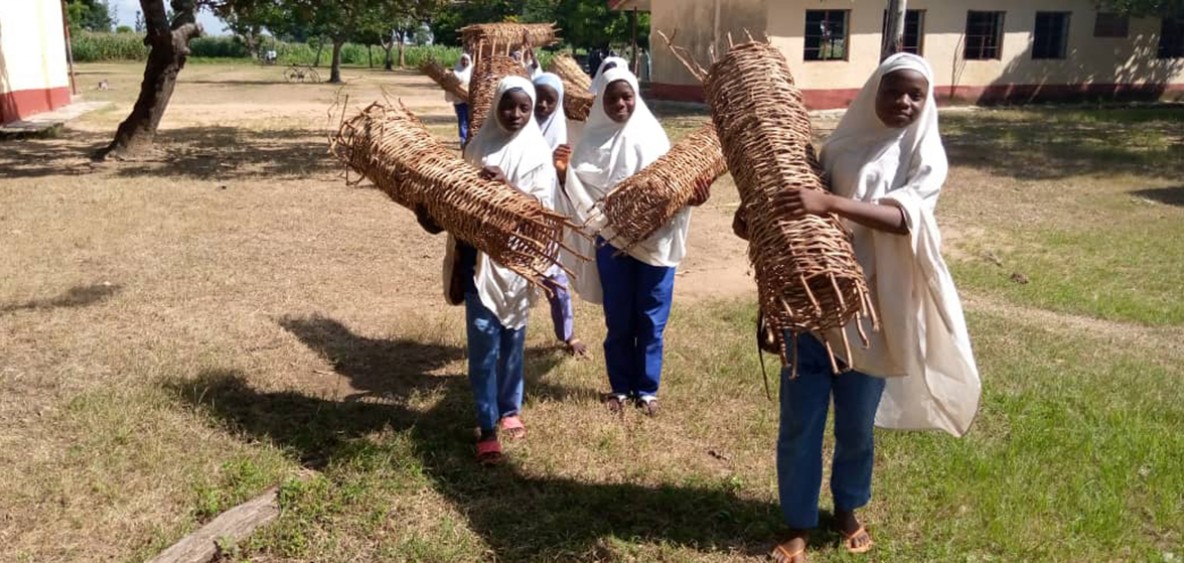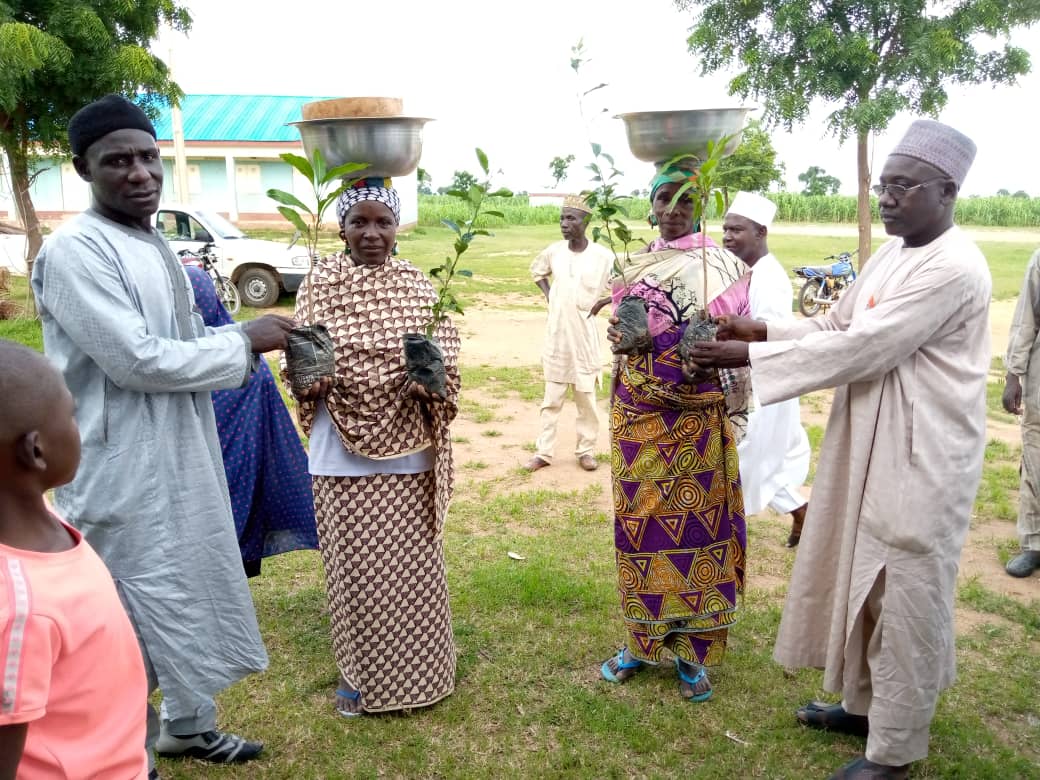 School children help transport handwoven fences to protect the newly planted orchard from being eaten by animals in Dutsen Kafur.
School children help transport handwoven fences to protect the newly planted orchard from being eaten by animals in Dutsen Kafur. By mixing modern agroforestry techniques with the indigenous knowledge of local producers, the RFS Nigeria project is harnessing the benefits of trees to increase agricultural productivity, provide alternative sources of income and improve ecosystem functioning.
Haruna Adamu is a subsistence farmer in Kaltungo local government area in Gombe State. In the past, whenever Haruna needed to plant more crops or harvest wood for fuel, he would cut down trees on and around his farm. Over time, his farmland started showing clear signs of soil erosion and he struggled with low crop yields.
In Nigeria, overharvesting of natural resources has led to increasing environmental degradation and high levels of deforestation. The challenges posed by degraded landscapes are further exacerbated by climate change. As the frequency and intensity of droughts and floods increases in the region, crop and livestock losses, as well as the further degradation of rural landscapes, have devasting implications for food security.
For many farmers like Haruan Adamu, the link between trees, land, climate and food production is not common knowledge. "Prior to the [RFS] project, I did not understand that cutting down of trees would lead to deforestation and desertification,” says Haruna. As a beneficiary of the RFS Nigeria agroforestry training, however, Haruna was soon able to make the connection between local deforestation and his declining crop yields.

World Agroforestry defines agroforestry as the interaction of agriculture and trees, including the agricultural use of trees. It is a dynamic natural resource management system that aims to produce trees for timber, to supply diverse and nutritious foods, and to ensure the protection of the natural environment.
In the second half of 2020, the RFS Nigeria project rolled out an agroforestry training programme, in partnership with the State Agricultural Development Program (ADP), to all 70 project communities. The training programme engaged over 3,500 beneficiaries across 14 local government areas in the seven implementing states of the programme: Adamawa, Nasarawa, Jigawa, Katsina, Benue, Gombe and Kano.
The training focused on improving farmer knowledge of the link between trees, agricultural production and the local economy, and provided them with the tools and knowledge to establish agroforestry systems on their own farms. Growing more trees, it was explained, also increases carbon sequestration and contributes towards Nigeria’s efforts to combat climate change.
Agroforestry approaches covered in the training included alley cropping, a technique where rows of trees create alleys within which agricultural crops are produced; and silvopasture, an approach that integrates trees and livestock grazing on the same land. These create diverse systems with a range of production opportunities and income sources over the short-, medium- and long-term.

Following the training, the project supplied the communities with tree seedlings and supported tree planting sessions. Fruit and nut trees, such as cashew, citrus, mango and guava, serve a dual purpose, combating land degradation and improving soil quality, while also providing communities will new sources of food for sale and consumption.
For many farmers, the fruits of their labour will last a lifetime. "This kind of support helps communities improve employment, not only for one to two years, but for the coming generation,” said Babu Yusif Harbo, a training participant in Jigawa State, “The trees given to me [by the project] will benefit me, my children and my children’s children."
Subscribe to our monthly newsletter to receive updates on stories directly from the field across all our projects, upcoming events, new resources, and more.